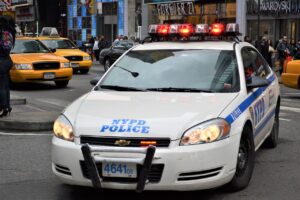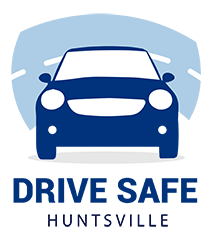Behavior at Traffic Stops
The first step in your receiving a citation for a moving violation is the traffic stop. Many drivers, especially good drivers, find this situation very stressful because they obey the laws and have little interaction with law enforcement. Other drivers, unfortunately, may be all too familiar with the routine. Regardless of which category you place yourself in (category one would be nice) remember this – your action or reaction at a traffic stop can escalate the situation very quickly to the point where there may be deadly results! This also carries over to your passengers. They must exhibit appropriate behavior as well.

If you see the flashing blue lights in your rear view mirror, signal and pull over as you should for any emergency responder. If the officer is responding to a call, the police car will pass you by. If you are the subject of a traffic stop, the vehicle will pull in behind you. It is important for both you and your passengers to understand that any suspicious behavior or sudden movement must be treated as threatening by the officer. Don’t put them in that position.
If you are stopped:
- After pulling over, put your vehicle in park and turn off the ignition.
- DO NOT leave the vehicle unless the officer directs you to do so.
- Lower your driver side window immediately before the officer approaches your vehicle.
- If it is dark outside, turn on your interior lights before the office reaches your vehicle.
- Remember, as the driver, you are in control of your vehicle. Stay calm and instruct your passengers to do the same.
- Your hands should be on the steering wheel and in plain view before the officer reaches your vehicle. The hands of all occupants should be in plain sight as well.
- Neither you nor your passengers should be holding anything. This is the type of situation that can lead to a dangerous confrontation.
- Pay close attention to any instructions the officer gives you. Politely ask the officer to repeat any instructions you do not understand.
- At this time, give the officer your undivided attention. Misunderstanding instructions is another thing that can lead to a more serious encounter.
- If you or anyone in the vehicle is carrying weapons or if any are stored in the vehicle, inform the officer first thing.
- Do not make any unexpected or sudden moves. Retrieve your paperwork after you are instructed to do so.
You might be surprised to learn that the officer also has a
code of conduct for traffic stops:
- The officer should identify him or herself.
- Plain clothes officers should present a badge or other official ID. You have the right to politely ask to see ID if they do not.
- Expect the officer to politely ask to see your license, registration, and proof of insurance. At that time, retrieve them, making no sudden moves.
- The officer should explain why you were stopped. Sadly, many drivers know why because they are aware that they violated a traffic law.
- If you receive a citation, the officer will ask you to sign it. When you sign a citation, you are only attesting to the fact that you received it. Signing is not an admission of guilt.

Becoming argumentative with an officer is almost as bad as making a sudden move inside your vehicle. It will arouse suspicion. Remember, signing a citation does not mean you admit to being guilty. It simply means you received the citation. If you feel you were treated unfairly, carefully read the citation to find out how you can appeal the ticket. You must do this fairly soon after receipt of the citation. The deadline to appeal may even be provided on the ticket. Make sure you remember as much detail as you can about the traffic stop. It will certainly help your cause.
Regardless of whether or not you are guilty, law enforcement officers must exhibit courteous and professional behavior. If you feel that an officer was unprofessional or abusive, you can report the officer to the appropriate department. Again, to make a solid case, you need as much detail about the incident as possible.
NHSTA statistics for 2018 show that most crashes (17.9%) in Alabama occurred on Fridays. Most fatalities (16.6%) occurred on Saturdays. Police officers make traffic stops to correct improper, if not dangerous, driving behavior. They do it for the safety of all of us, including you.
